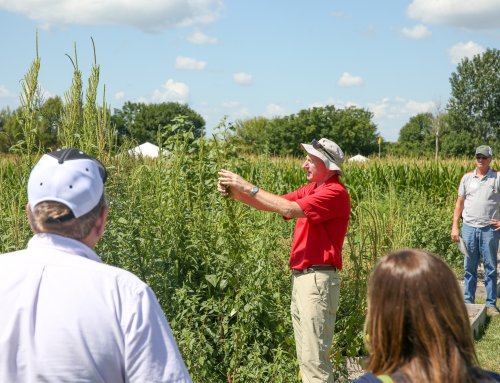Next Steps for Pesticide Applicators
We received updated information about the priorities of the Iowa Department of Agriculture and Land Stewardship (IDALS) concerning pesticide applicators. Both the Iowa Secretary of Agriculture and the Governor has been working with us to find solutions and we appreciate the priority they have placed on keeping the food system as uninterrupted as possible. Their efforts to keep agriculture running in these unprecedented times is greatly appreciated.
We are aware of the difficulty the industry is facing with the lack of certified applicator numbers in the face of needing to apply restricted-use pesticides such as dicamba. This continues to be an ongoing conversation and a high priority.
IDALS has shared with us they are working through regulatory relief to address pesticide applicator issues related to COVID-19 in a step-by-step process:
- The first step was to provide immediate options for those applicators who were certified as of Dec. 31, 2019.
- Provide options that address the cancellation of in-person testing sites for commercial and private applicator certification due to public health recommendations.
- Work with EPA and the Governor’s office to address other pesticide-related regulatory issues due to the COVID-19 pandemic.
Below are questions IDALS has been receiving and the department’s answers to those questions.
Q&A – Answered by IDALS; Pesticide Applicator Certification
1) Once an applicator has his/her private applicator certification, can they apply dicamba and paraquat?
All applicators must follow pesticide label directions. We are in constant communication with EPA regarding pesticide label statements for these products and have requested clarification from EPA on the requirements of the federal label as they pertain to the distinction of ‘use’ by private vs. commercial applicators. However, there has been no change to label requirements granted thus far.
A) Do they receive their applicator license number at that point? I have heard applicators need to input that number when they apply chemicals like dicamba.
Applicators will be able to get their certified applicator number and pesticide company license number through the online pesticide portal.
These recent challenges have slowed the processing of paper submissions. Processing of paper submissions for private pesticide certifications is very close to being caught up and available through the online pesticide portal. There continues to be a delay in processing paper submissions for commercial applicator certifications and the team is working to complete them as soon as possible.
B) If they don’t receive their applicator number online (after they’ve paid for a license), is there a way they can continue to utilize those chemicals while waiting?
No, the applicator must follow all product label requirements. Dicamba and paraquat labels require a completed certification and applicator number.
2) After the proclamation expires, will there be any kind of grace period for the new commercial applicators that haven’t yet been able to take their in-person tests?
The regulatory relief only applies through the duration of the proclamation and any extensions. We recognize this as a potential issue and are in constant communication with the Governor’s office. We will work with her team to look for solutions to help ease the transition.
3) Can a person who already has a private applicator license go to work as a commercial applicator for an ag retailer only during this declaration period?
Yes, the provisions of the general supervision requirements apply to all private certified applicators. This includes all current private certified applicators, new private certified applicators, and private certified applicators who were certified as of 12/31/19. This regulatory relief only applies through the duration of this proclamation and any further extensions.
4) Is there any additional regulatory relief for aerial applicators since the commercial applicator waiver doesn’t apply to them?
Not at this time. Aerial applicators requirements go beyond the agricultural pesticide applicator categories (1A, 1B, 1C, 1D) and are outlined in a separate category (11), which means the standards of competency for aerial applicators are different than those of agricultural categories.
Continuing Communication
Restricted use pesticides add an additional layer of complication because it involves federal rules. We will continue to work with IDALS to get pesticide applicator issues handled so you can fill the critical need to keep the food supply functioning in the state and the country.


